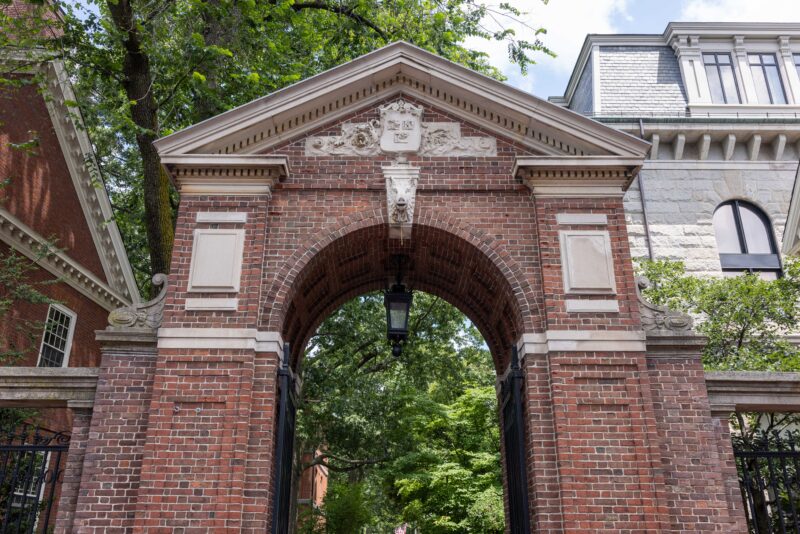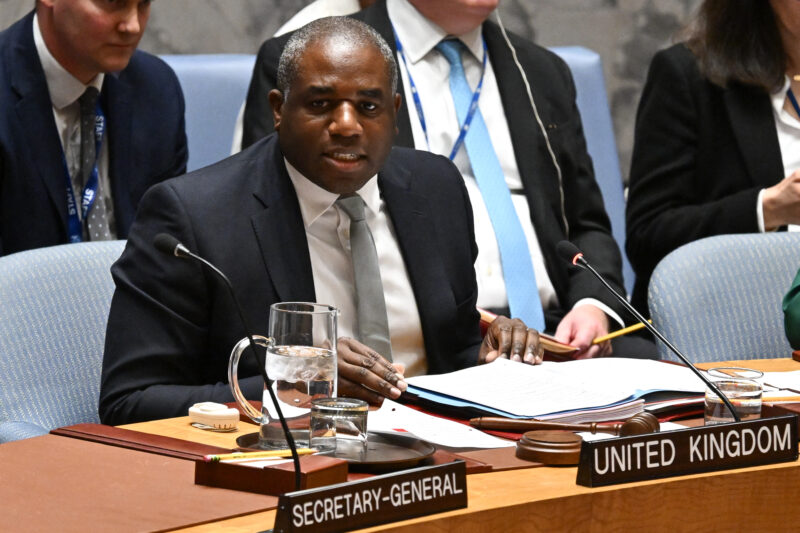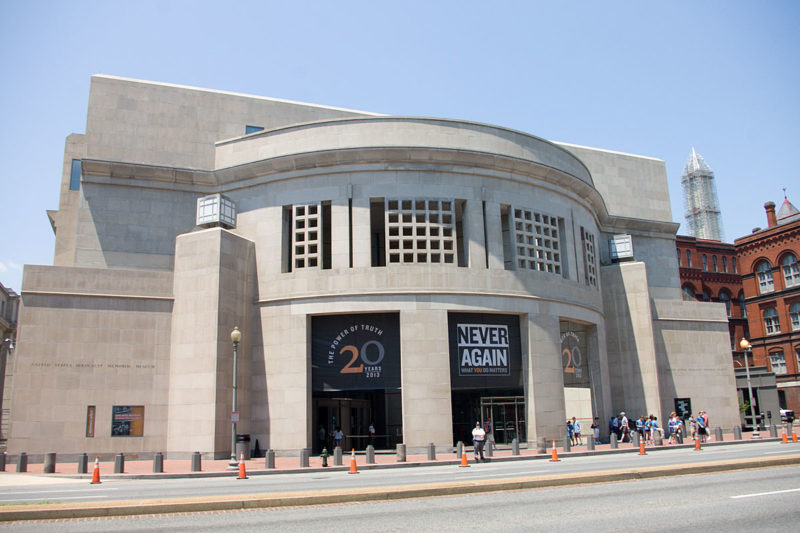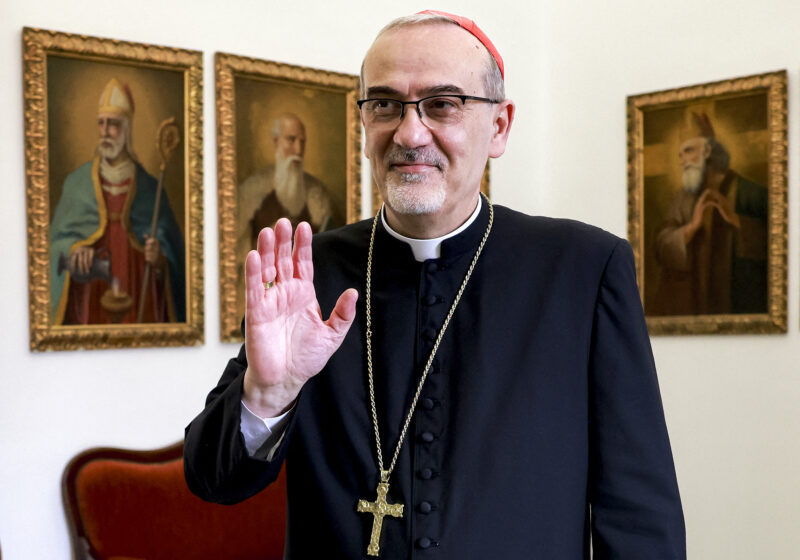Plus, Baraka's bounce alarms N.J. Jewish leaders

Win McNamee/Getty Images
U.S. President Donald J. Trump and Emir of Qatar Tamim bin Hamad al Thani attend a signing ceremony at the Amiri Diwan, the official workplace of the emir, on May 14, 2025, in Doha, Qatar.
Good Thursday morning.
In today’s Daily Kickoff, we look at Newark Mayor Ras Baraka’s rising poll numbers in the final days before New Jersey’s Democratic gubernatorial primary, and look at how Jews in Australia and Canada are reacting to recent liberal party electoral victories in both countries. We also talk to experts about how Israel is viewing the White House’s warming relations with Syria, and report on a bipartisan, bicameral call to the Trump administration to prioritize hostage-release efforts. Also in today’s Daily Kickoff: Sen. Lindsey Graham, Josh Kushner and Sarah Abramson.
What We’re Watching
- President Donald Trump arrived in the United Arab Emirates today as he continues on his multi-country Middle East trip.
- The Senate Armed Services Committee is convening a hearing this morning on foreign military sales.
- Also this morning, the Senate Foreign Relations Committee is holding nomination hearings for Joel Rayburn to be assistant secretary of state for Near Eastern affairs and Chris Pratt to be assistant secretary of state for political-military affairs.
- Politico is hosting its Security Summit today in Washington. Speakers include: former National Security Advisors John Bolton and Jake Sullivan, the White House’s Seb Gorka, Sens. Deb Fischer (R-NE), Mark Kelly (D-AZ), Eric Schmitt (R-MO) and Reps. Mike Lawler (R-NY), Michael McCaul (R-TX), Raja Krishnamoorthi (D-IL), Rick Crawford (R-AR), Jim Himes (D-CT), Anne Neuberger, former deputy national security advisor for cyber and emerging technologies, and the Foundation for Defense of Democracies’ Craig Singleton.
What You Should Know
A QUICK WORD WITH JI’S MELISSA WEISS
On his first presidential visit to the Gulf nation eight years ago, Trump called Qatar “a funder of terrorism at a very high level.” Last night in Doha, the president praised Qatari Emir Sheikh Tamim bin Hamad al-Thani as an “outstanding man.”
It’s a remarkable turnaround that underscores Doha’s efforts to use its financial largesse to build goodwill and position itself as a global player.
Doha, which a decade ago was ostracized in the region and on the global stage but has since regained its standing, has in recent years served as an intermediary between the West and malign actors (some of which, like Hamas, it financially supports). Earlier this week, al-Thani acknowledged Qatar’s “long outreach” that has included diplomatic efforts in the Russia-Ukraine war, Rwanda, the Democratic Republic of the Congo and Afghanistan.
And at a state dinner given in Trump’s honor last night in Doha, the president asked al-Thani to “help me with the Iran situation.” (American negotiators reportedly presented Iran with a nuclear agreement proposal during the latest round of talks over the weekend.) As Trump left Qatar today, the White House announced that it had secured deals with the country worth $243.5 billion.
While the current and previous administrations have welcomed Qatar’s efforts (specifically with assistance in negotiations over the Israel-Hamas war), Capitol Hill is taking a more measured — and cautious — approach to the Gulf nation, potentially setting up clashes with the White House.
Sen. John Kennedy (R-LA), who earlier this week had hedged when asked about Qatar’s intention to gift a luxury jet to Trump, took a harder line against Doha days later, saying he trusts Qatar “like I trust a rest stop bathroom.” Senate Majority Leader John Thune (R-SD) said on Tuesday that the potential gift “will attract very serious questions.”
Qatar has long flexed its economic power and vast wealth to spread controlled messaging (as it does with its Al Jazeera network and affiliated channels), exert influence abroad (as it does with its deep-pocketed funding of American universities), avoid punishment for vast human rights abuses (as it did with the construction of the World Cup facilities) and mend frayed relations (as it did with its reentry into the Gulf Cooperation Council). Yesterday, The Free Press’ Jay Solomon and Frannie Block published an 8,600-word piece examining Qatar’s efforts to gain influence across American society.
Doha’s yearslong efforts have even won over some Republican legislators. Following the announcement yesterday that Qatar had inked an agreement to purchase up to 210 Boeing 787s and 777X aircraft — the largest purchase in the aviation manufacturer’s history — Sen. Lindsey Graham (R-SC) praised the deal, calling it a “game changer” and noting Boeing’s factory in Charleston. “Qatar Airways’ purchase will ensure the Charleston plant has work for many years to come … I appreciate our allies in Qatar for making this investment in Boeing aircraft and I appreciate everything the Trump Administration has done to make this possible,” Graham posted on X.
But more telling of Qatar’s efforts to boost its image is Sen. Roger Marshall’s (R-KS) 180 on Doha. Six years ago, Marshall blasted Qatar’s “well-documented support for terrorism and extremist groups [that] have fueled violence, civil war and bloodshed.” But in a Senate Health, Education, Labor and Pensions Committee hearing on campus antisemitism in March, Marshall denied that documented antisemitic incidents had occurred on campuses that have received Qatari funding and called the Gulf nation “a great ally to America.”
What happened in the intervening years? In 2023, Marshall visited Qatar, where he met with the emir. The following year, the senator met with Qatar’s prime minister in Washington, leading a meeting with a group of Republican senators. In addition, disclosures through the Foreign Agents Registration Act first obtained by the Washington Examiner indicate repeated outreach from lobbyists for Doha to Marshall’s longtime chief of staff, including an invitation to a March 2022 trip to Qatar.
Successive administrations and Capitol Hill have largely looked away from Qatar’s vast influence network. With the world focused on crises around the world, as well as more pressing concerns over Russia, China and Iran, it has been easy for concerns about Qatari influence to fall by the wayside. Doha’s evolution from regional pariah to global power broker reveals an ugly truth about politics: that enough patience and resources can restore the standing of dangerous entities. In the coming weeks and months, the White House and Capitol Hill may be forced to reckon with the true price of that partnership.
ELECTION JITTERS
Newark Mayor Ras Baraka’s late surge in N.J. gubernatorial primary alarms Jewish leaders

With less than a month until New Jersey’s June 10 gubernatorial primary, Jewish community leaders are now confronting the unexpected rise of a far-left Democrat whose campaign is surging even as he has faced scrutiny over his record of commentary on key issues including Israel and antisemitism. Ras Baraka, the longtime mayor of Newark, drew national headlines last week after he was arrested by federal agents on trespassing charges at an immigration detention facility where he had been protesting, in a made-for-TV moment caught on video. The high-profile confrontation has helped to propel Baraka, an outspoken progressive who until recently had been seen as a long shot, to the top of a crowded primary field. A new internal poll commissioned by his campaign showed the Newark mayor closing in on Rep. Mikie Sherrill (D-NJ), the establishment favorite, who led by just four points and claimed only 21% of the vote, Jewish Insider’s Matthew Kassel reports.
Community concerns: That Baraka is positioned to pull off a potential upset in the Democratic primary, where a relatively small plurality of the vote could secure his nomination, has raised alarms among some Jewish leaders in the state who have voiced concerns about the mayor’s past praise of Louis Farrakhan, the virulently antisemitic Nation of Islam leader, and his condemnation of Israel’s war in Gaza, among other issues. But as the primary draws closer, Jewish leaders acknowledge that they have not yet developed a playbook to counter Baraka’s ascendance, pointing to a broader pattern of organizational confusion in a state home to a sizable, diverse and politically active Jewish community. “I find the organizing very lacking right now,” one Jewish activist in New Jersey told JI on Wednesday, even as she described “grave concerns” among Jewish community members who have found Baraka’s rhetoric “over the top.”
Bonus: Former Anti-Defamation League National Director Abe Foxman endorsed Rep. Josh Gottheimer (D-NJ) in the Democratic primary.






















































































